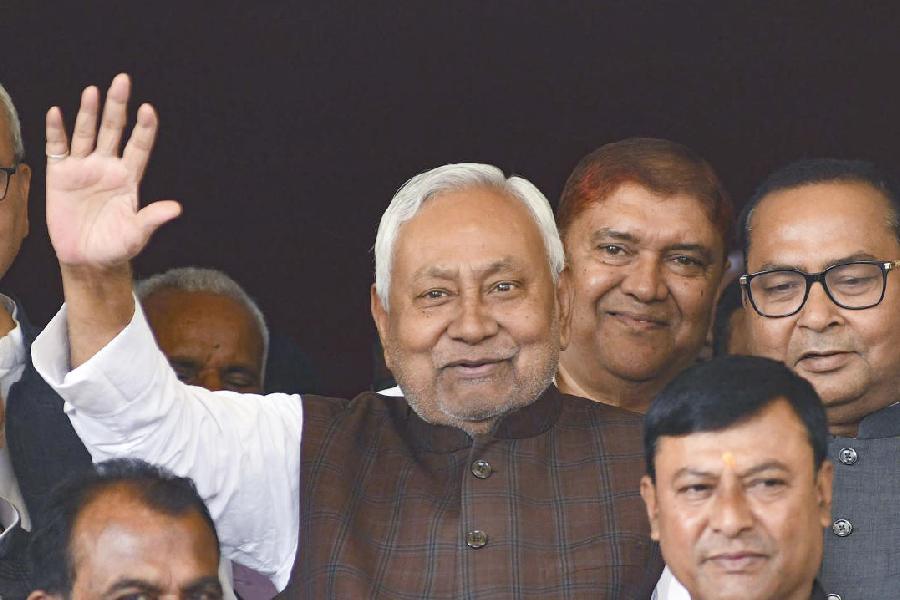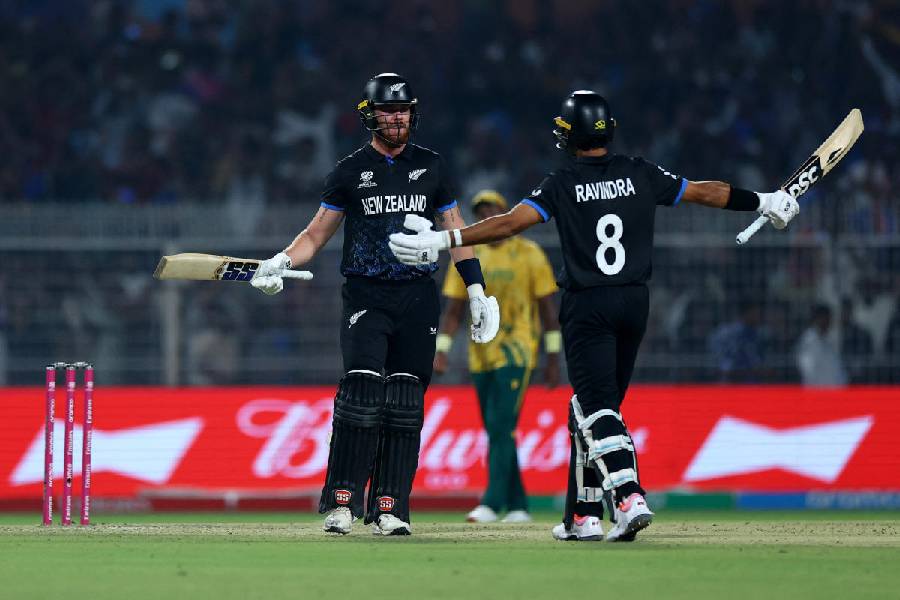|
|
In April 1946, the Cabinet Mission was holding consultations with Indian leaders about the possible shape of independence. Jinnah was insistent on Partition; Gandhi wanted to pay any price to prevent Partition, but the other Congress leaders, who would have to run the government, balked at the price Jinnah was asking for staying within India. At that time, Maulana Abul Kalam Azad gave an interview to an Urdu magazine of (then Indian) Lahore, Chattan. It was soon overtaken by events and forgotten. But it is remarkable for its prescience.
When asked whether he did not think Pakistan had become inevitable, Azad replied that the creation of Pakistan would solve no problem. The cherished goal of a Muslim was to spread Islam; if Muslims had from the outset divided the world between Muslim and non-Muslim territories, Islam would never have spread. If Muslim politicians had not used offensive language, if they had not collaborated with the British to widen the breach between Hindus and Muslims, the number of Muslims would have grown more. “Under British influence, we turned Islam into a confined system, and following in the footsteps of other communities like Jews, Parsis and Hindus we transformed ourselves into a hereditary community. The Indian Muslims have frozen Islam and its message and divided themselves into many sects. Some sects were clearly born at the instance of colonial power. Consequently, these sects became devoid of all movement and dynamism and lost faith in Islamic values.” Ulema (the priesthood) would play a bigger role in Pakistan, but Islam would lose its sheen.
When the interviewer pointed out that the Ulema were with Jinnah, Azad said that those who invented a new religion for Akbar were also Ulema. The number of Ulema who find an honourable mention in history could be counted on the fingers of one hand — Imam Hanbal, Ibn Taimiyya, and, in India, Shah Waliullah and his family. Alf Sani was a brave Alim, but those who got him imprisoned were also Ulema.
The interviewer asked what was wrong if Pakistan came into being; after all, it would protect the unity of Muslims. Azad said that all Hindus would have to leave Pakistan. All Muslims could not be accommodated in Pakistan; some 30 million would have to stay back in India. They would face three choices: they might migrate to Pakistan, they would become victims of riots until the generation that had to experience Partition passed away, or they would convert to Hinduism. Pakistan would be controlled by outside powers; India would have no problem with that because it would keep Pak hostility in check. East Pakistan would secede once Jinnah and Liaquat Ali Khan passed away; that would leave West Pakistan open to regional conflicts and balkanization. Muslim businessmen wanted Pakistan because they feared competition.
The interviewer said that in Pakistan, Muslims would be able to keep their communal identity intact and be good Muslim citizens. Azad said that they had been able to do so under British rule: why should they fear they would not be able to do so in a democratic India in which they would have a voice? India’s border states (Bengal, Punjab, Sind, the North-Western Frontier Province, Baluchistan) had Muslim majorities and shared borders with Muslim countries; there was no way Muslims could be eliminated. Jinnah himself was an ambassador of Hindu-Muslim unity. Till 1937 he had opposed Partition. Then the Congress formed governments in seven states and excluded the Muslim League. In 1940, Jinnah adopted the demand for Pakistan in an effort to check Muslim political decline.
The interviewer asked why Muslims had become so impervious to reason. Azad said that the Muslims’ was the misplaced enthusiasm of a mob; when people lose confidence and self-respect, they are engulfed by imaginary doubts and dangers and they fail to make a distinction between right and wrong. The true meaning of life is realized, not through numerical strength, but through firm faith and righteous action. If Muslims’ lives are in danger, Partition would not remove the danger; it would haunt their borders, and expose them to armed conflict in which many more lives would be lost.
The interviewer said that Hindus and Muslims were two different nations with different inclinations; how could they ever be united? Azad said that freedom was a blessing, a right of every citizen; it could not be divided on the basis of religion. Muslims were divided amongst many well-entrenched sects. There were Wahhabis, Sunnis and Shias, and many more sects owing allegiance to various saints and divines. For them, allegiance to Islam meant allegiance to their own sect. Even small issues like raising the hand while praying and saying ‘Amen’ loudly had created insoluble disputes. The Ulema dealt with disputes by using taqfeer (branding people as infidels). Once they used to take Islam to disbelievers; now they took away Islam from believers. Muslims had come to prefer politics to religion and to pursue worldly ambitions as commands of religion.
Finally, the interviewer asked Azad why he had closed down his magazine, Al-Hilal — whether he had felt as if he was proclaiming azan (call to prayer) in a barren desert. Azad said that on the contrary, editing Al-Hilal had enriched his life; he felt like one of Prophet Mohammed’s companions. “My own voice entranced me and I burnt out like a phoenix.” But he came to the conclusion that the freedom of Asia and Africa depended on the freedom of India, and that Hindu-Muslim unity was the key to India’s freedom. Even before World War I he realized that India was bound to get its freedom and that no power on earth could deny it. “I ardently wished that Muslims would learn to walk together with their countrymen and not give an opportunity to history to say that when Indians were fighting for their independence, Muslims were looking on as spectators. Let nobody say that instead of fighting the waves they were standing on the banks and showing mirth on the drowning of boats carrying the freedom fighters.”
Maulana Abul Kalam Azad failed in his endeavour to make Muslims a part of independent India’s mainstream. Jinnah walked away with Pakistan. But its later history followed Azad’s predictions with brutal accuracy. He was right about India too, except in one respect: he did not anticipate that Muslims would become a poor, backward community in India. The Muslims that stayed back were poorer than those who migrated; but that is not the only reason why they have fallen behind. There is also informal discrimination. True, India gives a Sania Mirza or Azim Premji the chance to rise and shine. But it also is home to much Hindutwit prejudice. A united India would not have removed the prejudice. But discrimination would perhaps have worked differently; it would have led to ghettos. The Congress is quite at home with the discrimination. It has never thought of banning it; its answer has always been State-ordained discrimination in the form of reservations. After 60 years of Independence, they are now spreading to Muslims. I would like to think that we were lucky to get rid of Pakistan; but I am no longer sure.











